Science of the Future

Nanotechnology-inspired inkjet printers are growing stem cells that could help regenerate nerves
Inkjet printers and lasers are parts of a new way to produce cells important to research on nerve regeneration. ... Researchers ...

Are we ready to welcome intelligent robots into the human family?
Artificial intelligence (AI) may become so advanced that some computer minds achieve consciousness and self-awareness. Would these machines be granted ...
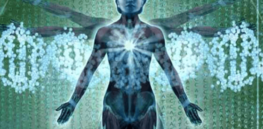
5 advancements that could enhance human performance
The concept of human augmentation, which is also called human performance enhancement or HPE, tends not to receive much attention ...

DNA ‘rock science’ helps wring more crude oil from shale rock, boosting supply
A small group of U.S. oil producers has been trying to exploit advances in DNA science to wring more crude ...

Epigenetics Around the Web: Avoid Craigslist for epigenetics advice; Engineering superhumans
Futurism's claims about the potential of epigenetics to create superhumans are about as scientific as a superhero comic book...and other ...

Facing climate change, plant breeders use genetics, robotics to develop crops ‘that can adapt to it all’
Variable weather is creating extreme challenges for crop breeding in California. How do you develop crops that will thrive under ...
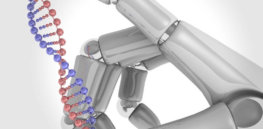
Artificial intelligence sorting of genetic mutations is helping patients get best drugs for their cancer
Cancer patients are often treated with chemotherapy and various types of drugs, but the results of these treatments aren't uniform ...
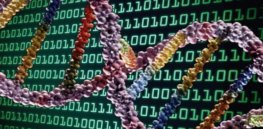
Nature’s hard drive: All of the world’s data could be stored in DNA–in one room
Humanity has a data storage problem: More data were created in the past 2 years than in all of preceding history ...
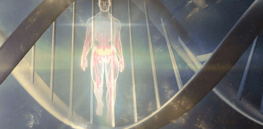
Decoding death: Craig Venter’s quest to uncover secret to immortality in our DNA
Craig Venter, the man in the late 1990s who, frustrated by the slow progress of the government-funded Human Genome Project, ...
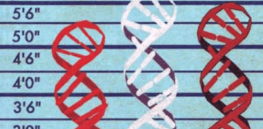
DNA forensics is not an infallible tool — but not because of science
DNA has revolutionized how crimes are solved. But blunders by investigators have thrown a cloud over the use of genetic ...
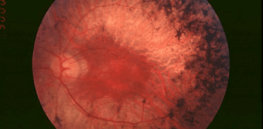
Tiny CRISPR-Cas9 injections could treat retinal diseases, with no off-target effects
Scientists at the Center for Genome Engineering, within the Institute for Basic Science (IBS) in Korea, in collaboration with ToolGen, ...
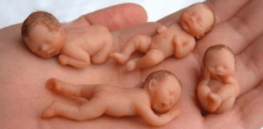
GLP’s Jon Entine: Rules on human germline gene editing must be flexible to encourage innovation
[Editor's note: Marcy Darnovsky is the executive director of the Center for Genetics and Society. Jon Entine is the executive director ...
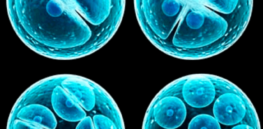
From rough sketches to virtual reality: How scientists study, learn about developing embryos
Armed with a wand and funky spectacles, Beatrice Steinert steps into a world of lush green mounds and bright blue ...

Cell atlas: 37 trillion cells in the human body will be catalogued in ambitious effort
The objective is to construct the first comprehensive “cell atlas,” or map of human cells, a technological marvel that should ...
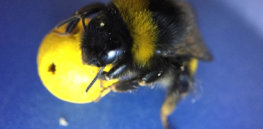
Golfing bumblebees? Amazing video of insect learning could spark artificial intelligence research
Bumblebees have learned to push a ball into a hole to get a reward, stretching what was thought possible for ...
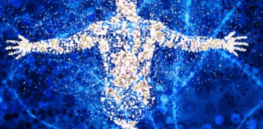
Epigenetics Around the Web: Engineering better humans? Fearmongering in Canada? Fake autism treatments?
Epigenetics Around the Web is a weekly roundup of studies and news in the field of epigenetics presented by GLP ...
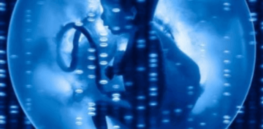
Proceed with caution: National Academies offers ‘qualified support’ for gene editing ‘abnormal’ embryos
The door to gene-edited humans was opened a crack by a joint National Academy of Sciences and National Academy of ...
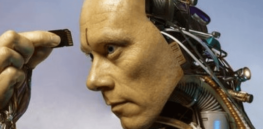
Enhancing humans: Becoming a cyborg could end up as a privilege of the wealthy
Within the next 200 years, humans will have become so merged with technology that we’ll have evolved into “God-like cyborgs” ...
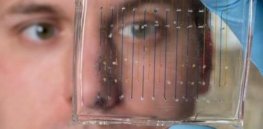
Nanoparticles: Parkinson’s, cancer, heart disease treatments boosted by DNA ‘barcodes’
Using tiny snippets of DNA as "barcodes," researchers have developed a new technique for rapidly screening the ability of nanoparticles ...

Talking Biotech: Clay nanoparticles deliver plants gene-silencing virus-protecting RNA spray
Revolutionizing crop protection? Biotechnologist Neena Mitter on 'bioclay' — spray that protects plants from a virus using nanoparticles to deliver ...
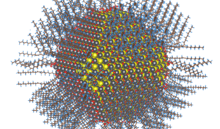
Nanoparticle-delivered CRISPR tools could treat hemophilia, cystic fibrosis and muscular dystrophy
More and more scientists are using the powerful new gene-editing tool known as CRISPR/Cas9, a technology isolated from bacteria, that ...
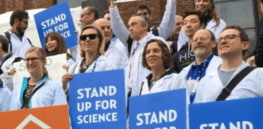
Leading plant scientist says he’s skipping Science March on Washington: Here’s why
[Editor's note: Kevin Folta, a molecular biologist and chairman of the Horticultural Sciences Department at the University of Florida, offers ...

Star Trek-like ‘tricorders’ promise DNA analysis on the go
We are rapidly approaching a time when Star Trek-style "tricorders" will offer rapid handheld analysis of genetic samples. It could ...
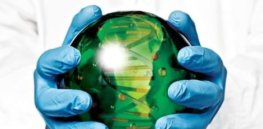
Manufacturing could be revolutionized by synthetic biology
The emerging discipline of synthetic biology sits at the crux of the intersection between design, biology, computing and manufacturing...[I]t appears ...
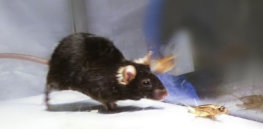
Genetically engineered killer zombie mice? Not quite
Neuroscientists at Yale University published a paper [On Jan. 12, 2017,] in the journal Cell showing how they could trigger a ...
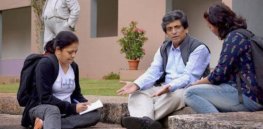
GMOs, nanotechnology losing ground in India because scientists not engaging public
Most reputed universities abroad have dos and don’ts for researchers on interacting with journalists when their papers are published. But ...
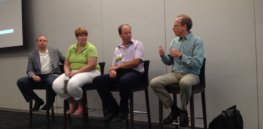
America’s refusal to embrace gene editing could start the next Cold War
Unlike other epic scientific advances...the immediate effect of genetic editing technology is not dangerous. Yet, it stands to be just ...

